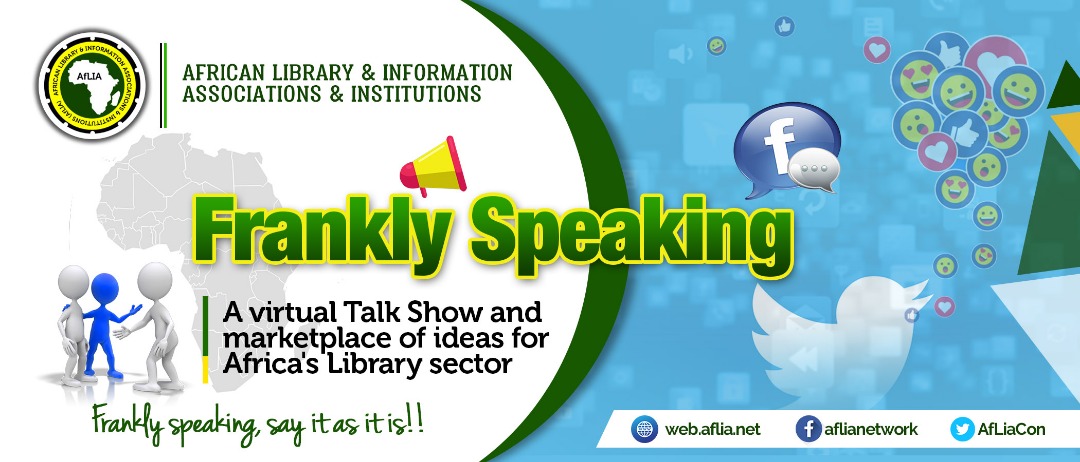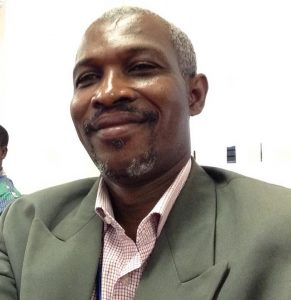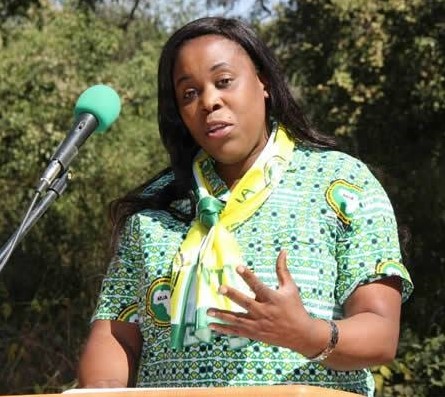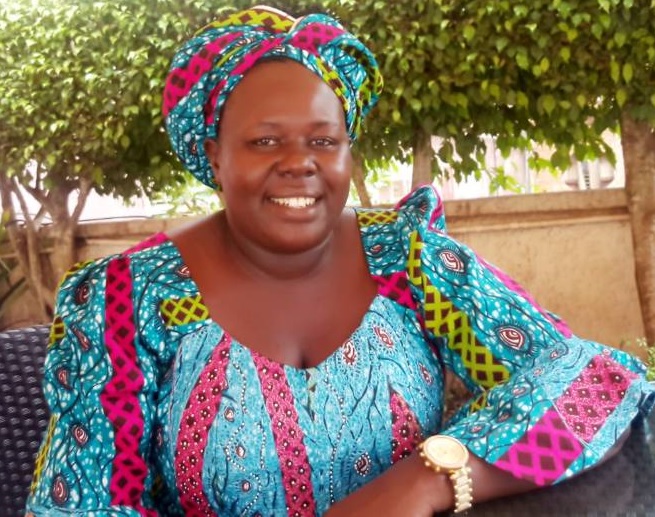Weaponisation of misinformation – the role of Librarians in curbing the epidemic

Information gives power – to learn, to make right, intelligent decisions and to have the capacity to perform or act effectively for better livelihood. Technology aids access to information. With a click on a mobile device, one can get information from the other side of the globe.
Flip the coin. What’s on the other side of information?
Misinformation!!!
False or inaccurate information, especially that which is deliberately intended to deceive’ and to dis-empower. Misinformation becomes a weapon when it is surreptitiously used to sway or control public opinion, widely propagate false narratives for the purposes of gaining commercial, political or social advantages.Technology drives access to information and misinformation too! Clickbait headlines. False claims of discoveries and events spread through WhatsApp and other similar social media platforms.

Samuel Bentil Aggrey, President, Ghana Library Association
The President Ghana Library Association, Samuel Bentil Aggrey, sees disinformation as a deliberate act of spreading wrong information intentionally. “Many of us can unintentionally misinform others like indicating today is Tuesday only to realize that it is or was Monday or Wednesday – that is misinformation. But disinformation and fake news are well planned deliberate information put together to achieve an effect through pure deceit.”
“It is very damaging ranging from mild (mere deceit) to the worse (death, debt). A Research Guide by Austin Community College gives three examples of dangers namely; many students believing the fake news and not knowing the real news; students obtaining lower grades in their studies because of using wrong or inaccurate sources and complications due to decisions taken on health due to false information.”
The bad news?
“Many people do believe wrong information! The situation is worrisome when the worst offenders are the youth. In November 2016, researchers at Stanford’s Graduate School of Education found out 80% of middle schoolers believed that sponsored content was real news. The same study found out that more than 30% of students thought a fake Fox News account was more trustworthy than the real one.”
So,
- Can libraries continue to stand as ‘oasis of information’ in the rising tide of damaging misinformation and fake news?
- Do Librarians have tangible roles to play in educating everyone out there on how to evaluate information and spot misinformation?
- Are these roles to be precautionary or damage control measures?
- How do Librarians proceed on this?

Velenasi Musanje, Zambian Librarian and former President, Zambian Library Association
According to Velenasi Mwale Munsanje, a notable Zambian Librarian and former President, Zambian Library Association:
“Definitely! Librarians have a key role to play in fighting and correcting fake news. It is our responsibility to educate people on how to look for information. In so doing, we need to seriously pay attention to also educate them on how to be on the lookout for fake news! But the question is, how many people across the world do us librarians reach? Franky speaking, we need more than just teaching people how to look for information and how to evaluate sources!”
“It takes the efforts of various stakeholders to fight this including the press – both public and private. Since librarians cannot reach everyone, we need to write and make a lot of useful noise on how to fight this vice. Stakeholders in the educational sectors are also key. Working with them in fighting this is very helpful. This fight is certainly beyond the efforts of librarians alone.”
“Librarian’s aim should be to take precautionary measures as some of the damage caused by fake news is irreversible. Librarians can guide users on how to identify credible sources of information. Most importantly, librarians must sensitize people on how to use the internet effectively. This should be spread to many people not just the active library users. Fake news affects everyone.”
“Also, how people access information is constantly changing. This calls for continuous interventions by librarians to be abreast with changing technologies and how to fight the vices that come with this. Librarians need to be proactive in reaching people that do not visit libraries physically. With limited libraries in most African countries, it takes a lot of collaboration with other stakeholders especially in the formal educational sector to ensure people are sensitized on fake news. Librarians must also write and publish a lot on fake news and spread this information widely.”
So, who takes the blame for the spread of misinformation?
Velenasi: “Frankly speaking, it can never be the fault of technology to promote fake news! Technology is here to make life easier for all of us in all aspects of our lives. It is an opportunity that we need to embrace and fully utilize positively. The more we embrace technology, the better our lives are. Appropriate usage is important. I think that we have many reasons contributing to this. Firstly, the reading culture in most of our countries is not that good and hence we love short cuts! We see a headline and simply share – without checking the contents fully. Sometimes if we feel like it, we read the first sentence or paragraph.”
“Even when we read in full and suspect some information is not right we just love to share with others in our circles.It requires a lot of sensitization of the public about the need to read in totality and analyze the source of the information. Other than this, yes there is a lot that librarians and other information professionals can still do to educate people in Africa on how to access relevant information and also how to identify fake news. We certainly are not yet out there 100% promoting information literacy. The political atmosphere does not make things easier. We have media houses having allegiance to certain groups of people. It is really hard to judge the credibility of the sources of information because even the public media now has not been spared from being partial.”

Dr. Sarah Kaddu, President, Ugandan Library Association (ULIA)
The President, Ugandan Library Association, Dr. Sarah Kaddu gives another perspective;
“The African society generally lacks Information Literacy training to evaluate information before believing it or stopping its circulation to avoid more damage. It is commonly said that ‘Africans are lazy at reading’, so they can avoid reading. As a result, news reporters caption their articles with catchy headlines, at variance with the actual content. Consequently, African society picks only headlines and share such news as if it were true. This has been facilitated by social media platforms. Librarians need to work on avenues to diligently ensure that fake news is not circulated and also to train society in detecting fake news. Information Literacy should be integrated in all fields. Furthermore, the responsibility does not only fall on librarians but all professionals from the information field equally have a big role to play – IT experts, Records Officers, Information Officers etc.”
What’s the next step for Africa Library sector? What do you think? Are there discernible and conscionable actions for AfLIA and national Library Associations to pursue in tackling the weaponisation of misinformation?
Speak Frankly!
Speak from the heart!
Share your thoughts!
